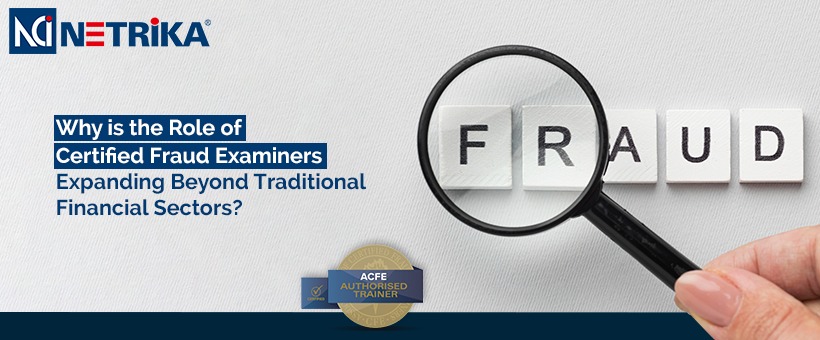News & Events
Why is the Role of Certified Fraud Examiners Expanding Beyond Traditional Financial Sectors?
- March 14, 2024
- Posted by: marketing@netrika.com
- Category: Blogs

According to an ACFE Report, over 40% of fraud risk detection cases across businesses come from tips/complaints from customers, vendors, or employees. With the number of fraud cases at an unprecedented rate, adopting a plan like the one above and following it can not only limit the company’s financial and reputational losses but also boost the efficiency with which fraud is discovered. The identification, analysis, and mitigation of fraud and its impact on the organization depend heavily on a well-organized structure for conducting fraud investigations. A certified fraud examiner is a highly skilled professional who undergoes training in fraud identification, prevention, and mitigation by leveraging various tools and techniques.
However, as the digital age is evolving, fraudulent cases are also shaping to become more cutting-edge and difficult to detect by experts. Therefore, the role of a certified fraud examiner has also evolved from the traditional approach of fraud detection and prevention in the financial sector to more sophisticated characteristics across industry verticals.
The comprehensive role of a certified fraud examiner encompasses the approach of-
- Certified fraud examiners now engage themselves in fraud reporting mechanisms like a hotline, website, or an outside, neutral source that can resurface an irregularity or improper behavior that could potentially expose the business to cyber, financial, or reputational risk.
- The certified fraud examiner puts together an investigative team with experience conducting effective investigations, regardless of the origin of the fraud claim, and has clearly defined roles to play before, during, and after a fraud incident. The team members may comprise auditors, council members, internal or external consultants, subject-matter experts, and law enforcement personnel.
- The certified fraud examiner and the investigation team take the necessary actions to preserve any hard copy or electronic documents as soon as they are certain of the fraud claim. Urgent action is taken immediately following the collection of evidence.
- A thorough method is developed by the investigation team and the certified fraud examiner to investigate business, financial, or financial documents that are relevant to the fraud investigation.
- The certified fraud examiner writes the report after the inquiry is over, considering the target readership, which may include regulatory bodies or internal stakeholders. The report would additionally mention police enforcement.

